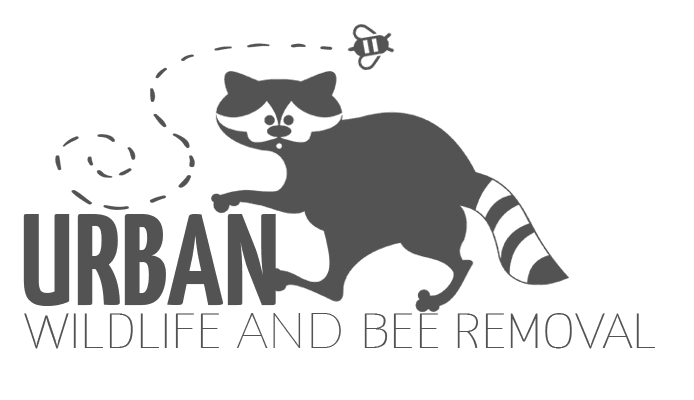UNWANTED HOUSE GUESTS? CALL NOW TO SHOW THEM TO THE DOOR! 919-626-4160
UNWANTED HOUSE GUESTS? CALL NOW TO SHOW THEM TO THE DOOR! (919) 626-4160
FREQUENTLY ASKED QUESTIONS
Q: Why did animals choose my house to nest and live in?
A: Your house is essentially a giant hollow tree. While all wildlife does not wish to be in your living space, your home provides the ideal environment in its walls, attics, and crawlspaces. The native wildlife in your yard belongs there and friendly measures should be taken to prevent wildlife from taking up residence in your home. The chances of wildlife entering your home in the countryside are just as likely as in a downtown setting.
Q: I hear noises in my fireplace; will the animal eventually crawl back out?
A: The only animals able to traverse a chimney are raccoons and chimney swifts. All other animals (in most circumstances) are on a one-way journey to the bottom of the chimney. The animal will eventually die if left in the chimney.
Q: Will the honeybees coming and going from my house eventually die during the winter?
A: Normally, they will not. During the spring, summer, and fall, the bees store nectar and pollen to consume during the winter months. If the colony does die during the winter, it is almost certain that a new swarm will move in during the spring. Sometimes this happens and is never noticed.
Q: Why doesn't spraying the bees with pesticide work for my house?
A: Beware of companies and individuals charging to use pesticides on honeybees. This is not a permanent solution. The entire area the bees inhabited MUST be mechanically altered to provide a lasting solution. The bees leave behind their rotting combs (somewhere between 30 – 80 lbs.) and pheromones in the void. This creates the perfect "fully furnished" place for new swarms to move in, starting the process all over again.
Q: I have seen squirrels in my attic and found a hole on the side of the house. Can I seal the hole when I see the squirrel leave?
A: It is possible that the squirrel is alone and can be sealed out in this manner; note, however, that it is not advised. The most common reason animals invade homes is to reproduce. Sealing a hole may seal in unseen squirrels or separate a mother from her young, causing the mother to desperately chew on the house to get back in. Also, squirrels trapped on the inside of the house will die, causing odors—after they attempt to chew their way out.
Q: I can see a bat hanging on the screen on the outside of my gable vent; should I have it removed?
A: Bats actually prefer to hang on the outside of the gable vent screen. If you have one bat and never notice more, you might consider leaving it there and monitoring the situation each year. If you notice guano (bat feces) in the form of a black smudge or line piling up under where the bat hangs, you should have the bat removed and the vent screened from the outside.
Q: I read online that a squirrel needs to be taken many miles so that it will not come back; is this true?
A: No, this is completely a myth. While most squirrels removed by companies are relocated far away, a grey squirrel only needs to be a few hundred yards away to feel lost. Flying squirrels are slightly different. A flying squirrel's home range can be as large as 3/4 of a square mile. They need to be relocated outside this home range.
Q: I have seen copperhead snakes in my yard. My husband kills them. What should we be doing?
A: Statistically and rationally, you are much safer ignoring the snakes altogether than taking any action yourself. About 40% of all snake bites occur when trying to kill the snake and 65% of bites occur on the hand, indicating intentional contact. Only one to two percent of all bites occur to women. If you wish to have the snake removed, please call a professional—do not attempt to kill or capture it.
Q: I see birds flying in and out of my neighbor's vents on the side of their house; should I/they be concerned?
A: Yes, more than likely these are starlings either roosting or nesting in the bathroom exhaust vents. The biggest concern is nesting. The birds enter the vent and tear a hole in the pipe into the attic space or voids between floors where they build a nest with four to six eggs. The process is very destructive.
Contact Us to Learn More About Our Wildlife Removal Solutions
If you’re interested in scheduling a wildlife removal service, don’t waste another moment. Contact our team in Cary, NC to learn more. We have years of experience in providing innovative wildlife removal services for residents across Apex, Cary, Chapel Hill, Clayton, Durham, Garner, Holly Springs, Knightdale, Morrisville, Raleigh, NC and the surrounding areas. No matter the type of pest, our animal removal team has all the proper knowledge and tools to quickly and efficiently get the unwanted guest out of your home.
Call Now for Wildlife Removal Services • 919-626-4160
GET IN TOUCH
Have a wildlife infestation in your home? Contact us today!
We Provide Animal Removal Throughout Zebulon, Cary, Apex, Holly Springs, Durham, Chapel Hill, Raleigh, Greensboro, Clayton, Knightdale, Garner, & Morrisville, NC
Contact Us
We will get back to you as soon as possible.
Please try again later.

